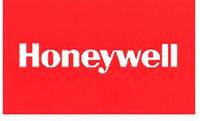German Motor Authority (KBA) Testing Reaffirms Safety Of New Low-GWP Automotive Refrigerant
 |
MORRIS TOWNSHIP, NJ--Aug. 8, 2013: Honeywell issued the following statement following the report-out of the German Federal Motor Transport Authority (KBA) about its recent tests of the new low-global-warming-potential (GWP) refrigerant HFO-1234yf:
"KBA's tests again demonstrate that using HFO-1234yf creates no serious risks, and as a result it will not pursue action under Germany's Product Safety Act. With the exception of Daimler, there is broad consensus that HFO-1234yf poses no greater risk than HFC-134a in cars.
"We acknowledge that KBA was put in the unenviable position of devising its own test because of a single automaker's decision not to comply with the EU Mobile Air Conditioning (MAC) Directive, which took effect this past January 1. KBA's results are not surprising because automobile manufacturers routinely incorporate materials that are far more highly flammable than HFO-1234yf into their vehicle designs, including motor oil, automotive transmission fluid, radiator antifreeze, brake fluid, and compressor lubricant – not to mention fuel. For a video on this topic, which includes a comparison of HFO-1234yf vs. HFC-134a and other materials, visit 1234 Facts .
"Honeywell and others have previously expressed concerns over KBA's testing protocols, which did not follow industry standards. SAE International, the world's most respected automotive engineering organization, has used globally accepted protocols to complete comprehensive Cooperative Research Programs (CRPs) to evaluate HFO-1234yf. Those programs have definitively determined that HFO-1234yf is safe. The CRPs included technical experts at automotive manufacturers and suppliers around the world, and used a wide range of information and data, including actual crash test results. These studies also employed fault-tree analysis, which evaluates the probability of a fire or other adverse conditions based on real data. This type of analysis has been proven to be a more accurate evaluation than any single test, which may be unintentionally flawed, biased or misleading.
"Using these proven protocols, the initial SAE CRP in 2007, which was sponsored by 15 global automakers, including all leading German automakers, major suppliers and 18 international, independent research institutes, found HFO-1234yf to be safe. The SAE, however, went further this year, convening a CRP sponsored by 11 automakers on three continents, which looked at an even broader set of data, including test results from Daimler. Based on this second exhaustive evaluation, it again determined HFO-1234yf is safe.
"Automakers had six years to prepare to comply with the MAC Directive. Those automakers who prepared for the law have proven that they can safely incorporate HFO-1234yf into their vehicle designs.
"Honeywell continues to stand firmly behind the safety of HFO-1234yf, and it will continue to supply its customers to enable them to comply with the MAC Directive."


